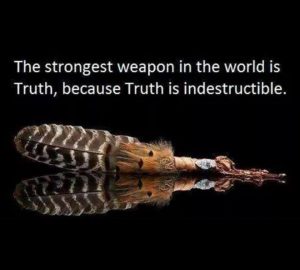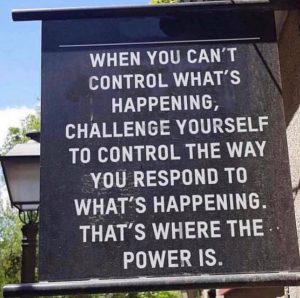
Many years ago, I entered into a relationship with an alcoholic. Although it was clear from the beginning she was addicted, I did not admit it to myself. Over time it became impossible to ignore the truth as the incidents of intoxication began to add up. After each occurrence there was an apology, a request for forgiveness and a promise it would not happen again. No matter how much I wanted the drinking to stop, it did not. No matter how much I prayed for follow-through on the promises to seek help there was none.
For too long I chose to believe the fantasy of what she promised, of how I believed she could be, rather than accept repeated actions of self-abuse as proof of what was actually true about the woman who used alcohol to avoid facing her pain and personal challenges. In this relationship I made the mistake of thinking we can change another person. By entering into this toxic and abusive relationship I also lost myself in relationship. Rather than remaining true to myself and my values, I ignored my gut and the evidence of her repeated behavior by thinking my love was strong enough to change her.
One of the most important relationship tips we must always keep in mind is the wisdom of Dr. Maya Angelou when she advised, “When people show you who they are, believe them.”
Anyone can promise anything, especially if they want to keep a situation as it is or they don’t want to honestly look at themselves. However consistent behavior is proof of who someone really is. Your relationships will remain unfulfilled if you cling to a fantasy of what you want someone to be at some point in the future, rather than accepting the truth of what their current behavior is telling you they are right now.
No matter how much we cherish the idea of who we think someone can be, what their potential is, the person MUST choose to be their best self just as you must choose to be your best self too. Believing what someone says while ignoring their opposite behavior is not loving, to yourself or to them.
Your love, no matter how strong, will not stop other people from being abusive, drinking, having affairs, over spending, or abusing drugs. No matter how much you love someone, your love does not cause them to wake up to how they are behaving or how they are allowing themselves to be mistreated. The only love powerful enough to make someone walk away from abuse, to change their behavior, to end fear or self-loathing, is self-love. The only love powerful enough to make someone change anything negative about themselves is self-love.
Each of us must want to change in order to change. And, we have to take the consistent actions necessary to bring about self-change.
Our love can support others once they make the decision to change themselves. But, until someone works to actively take the action to change, we must not allow ourselves to be mistreated.
Love does not allow abuse or mistreatment. But, often we believe because someone is family or a close friend we have to hang in there, allowing them to dump their anger, self-centeredness and emotional unconsciousness onto us. We feel this is how to love them. We may have been raised in a family where we were told not to rock the boat or we have to love and accept them for who they are. However, tolerating bad behavior is not loving those who are behaving badly. In fact the opposite is true, because not setting a boundary against mistreatment is telling the person their negative, hurtful and self-centered behavior is acceptable.
Paying the rent for a dug addicted child who is doing nothing to change is enabling the bad behavior to continue. Tolerating repeated affairs from a cheating spouse when we desire fidelity is enabling the unacceptable behavior to continue. Allowing ourselves to be subjected to constant ridicule or abuse from a parent or family member is enabling negative behavior to continue.
Enabling is not love. Enable is the misguided belief because I love them I must put up with their bad behavior. We cannot change others but we can change how WE allow others to treat us. Love brings a “higher level of awareness to a situation than what created it in the first place” just as Albert Einstein said. LOVE sets healthy boundaries to say no to negative, hurtful behavior.
If you are currently in an abusive situation you must set a boundary. Choose to respect yourself and walk away, if necessary. No matter how your heart might long for the other person to know and be better, he or she will not have a clue about how their negative behavior impacts themselves and others until they look at themselves with the honesty of their own heart.
You can only be in charge of and in control of your behavior. You cannot make someone behave differently. No matter how much you love them. Care for yourself by being honest with yourself about the behavior of others. Let go of the fantasy, if you just care enough they will change. Accept you cannot change anyone’s behavior but your own. Love yourself by making the positive changes necessary to stop yourself from being mistreated, used, abused, or being lied to. Setting boundaries against unacceptable behavior is the loving thing to do and will result in positive change. Even if the only beneficial change you receive is letting go of thinking your love is strong enough to change others.


